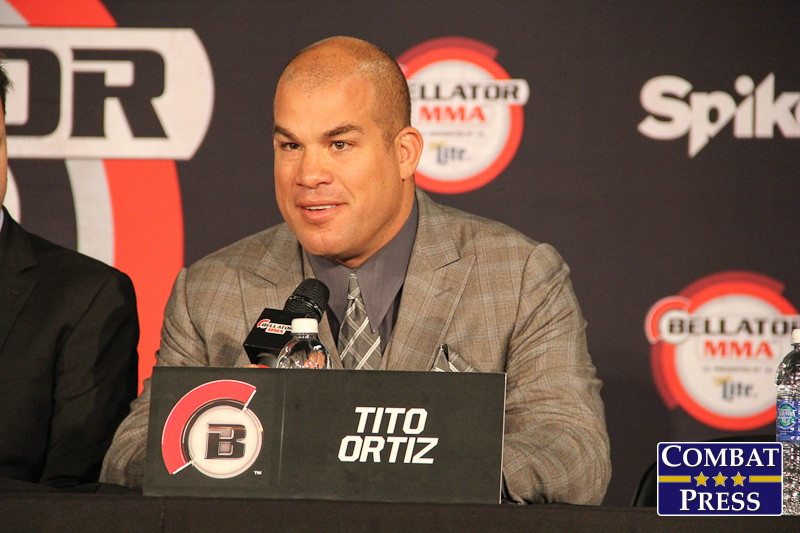For years, the UFC has ruled the mixed martial arts world with an iron fist. Many organizations — Strikeforce, Pride and Affliction, to name a few — tried to show they could keep up with the UFC. While Pride was originally considered to be ahead of the UFC in many areas, it eventually succumbed to the Zuffa behemoth. As did Affliction and Strikeforce, despite the latter having a formidable roster of fighters that included Fedor Emelianenko, Alistair Overeem, Fabricio Werdum, Gilbert Melendez and Jake Shields, among others. There hasn’t been one rival promotion that has been able to give the UFC a true run for its money, but that could be changing.
In 2008, a new promotion came on the block: Bellator MMA. It started out not directly competing with UFC, instead focusing to develop its own unique tournament format and adopt the motto “Where title shots are earned, not given.” It also spent its formative years with no national network to call home, though that changed in 2011 when Bellator was bought by Viacom and its fight cards were broadcast on MTV2 and then later on Spike TV, which was the UFC’s former home.
It didn’t appear to be a coincidence that Viacom snatched up Bellator so soon after UFC signed its landmark deal with Fox. Bellator upped the ante by signing former UFC fighters like Tito Ortiz and Quinton “Rampage” Jackson and held its first-ever pay-per-view in 2014, but that experiment proved foolish and founder and CEO Bjorn Rebney was removed and replaced by Scott Coker, who previously helmed Strikeforce.
Under Coker’s watch, Bellator has emerged as a viable alternative to UFC. Is it neck-and-neck with the UFC in a rivalry resembling the glory days of the Monday Night Wars between WWE and WCW in pro wrestling? No. Right now, it’s more akin to the current pro-wrestling environment where the WWE is king of the hill, and organizations like TNA, Ring of Honor and Lucha Underground are seen as alternatives for those who think the WWE is out of touch with the modern wrestling fan. Some may roll their eyes at yet another comparison between MMA and pro wrestling, but hey, the UFC signed CM Punk, didn’t they?
But back to Bellator. It’s emerged as a viable alternative to the UFC even after scrapping the format that set it apart. Removing the tournament format to determine title challengers and replacing it with quarterly “big top” events featuring fights like Tito Ortiz vs. Stephan Bonnar and Kimbo Slice vs. Ken Shamrock resulted in Bellator’s highest-rated fight cards on Spike TV to date. Bellator’s title fights haven’t suffered either, as bouts like Michael Chandler vs. Will Brooks for the lightweight title served as more than a fitting appetizer for Ortiz/Bonnar last year.
Bellator is also raising its profile by complementing its homegrown stars like Chandler, Brooks, Patricio “Pitbull” Freire and Michael “Venom” Page with signing established stars like Ortiz, Josh Koscheck, Cheick Kongo, Phil Davis, Josh Thomson and Melvin Guillard, as well as top prospects like Isao Kobayashi. The company may also still be in negotiations with Fedor.
However, some may think these signings are a desperate grab by Bellator to remain relevant in the UFC’s shadow. I disagree. Ortiz, Koscheck and the other signees are not meant to be the building blocks on which Bellator might — might — find itself neck-and-neck with UFC. Chandler, Brooks and the other homegrown Bellator guys are still the future.
Although guys like Ortiz, Koscheck, Guillard and maybe Fedor will be used to draw in the casual fan who knows those names, building talent is the key to Bellator’s sustained success. Just look at its recent signings of former NCAA and Olympic wrestlers Ed Ruth and Tyrell Fortune. Those are the guys Coker wants to hang his hat on going forward.
UFC is still McDonald’s, Burger King or Wendy’s — the big chain that everyone knows and (most) everyone still loves. But Bellator has an opportunity to be Chipotle or Panera — the fast-rising alternative that provides a product which also appeals to everyone. I think the company is already there, and it can go even further. It can still become the preferred taste of MMA fans everywhere.

